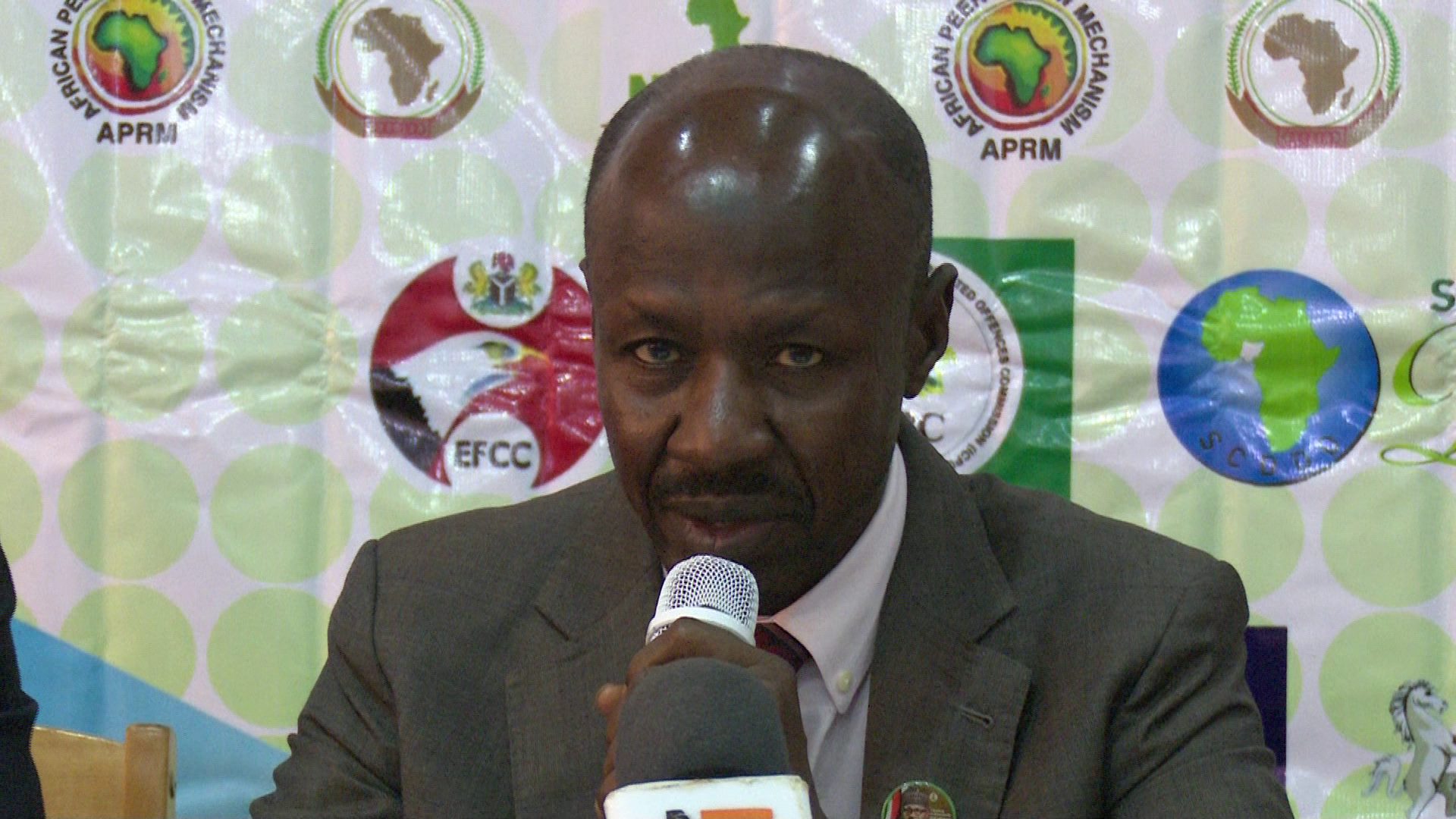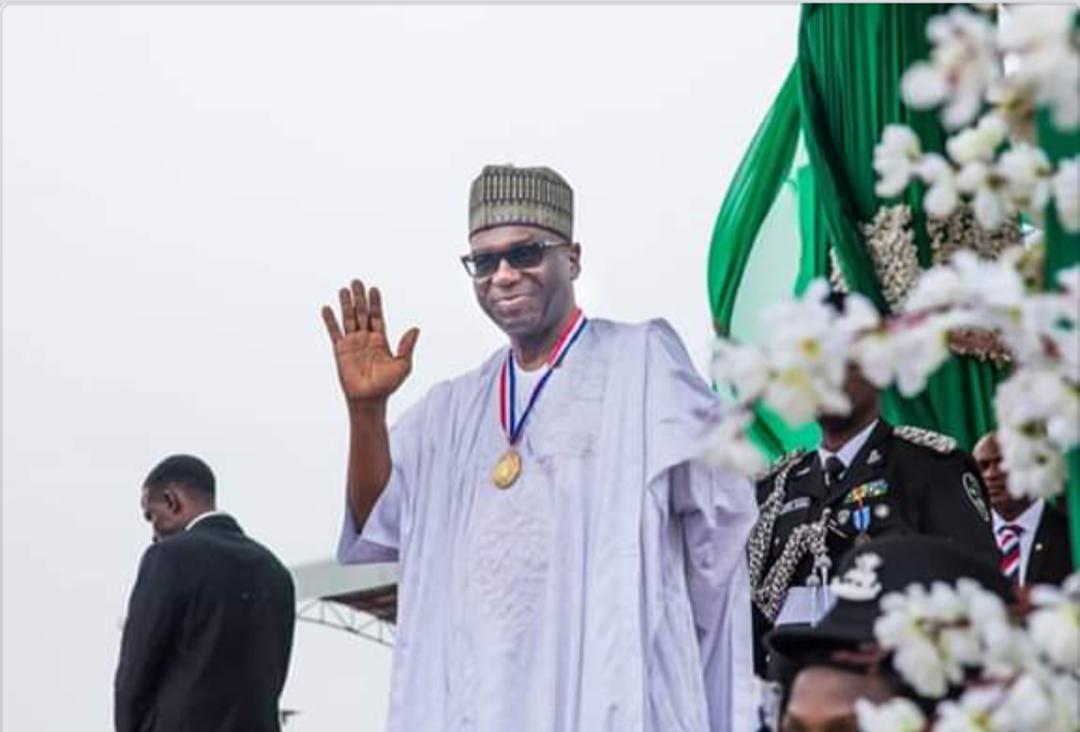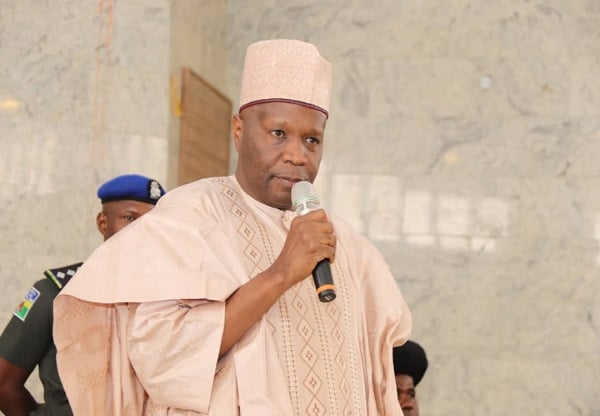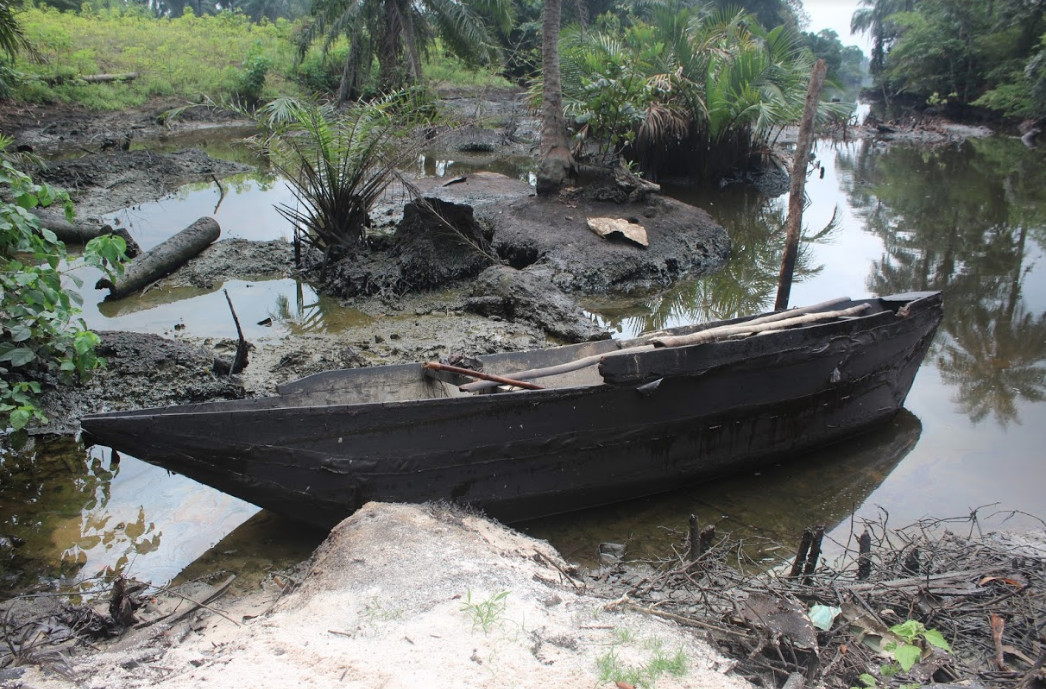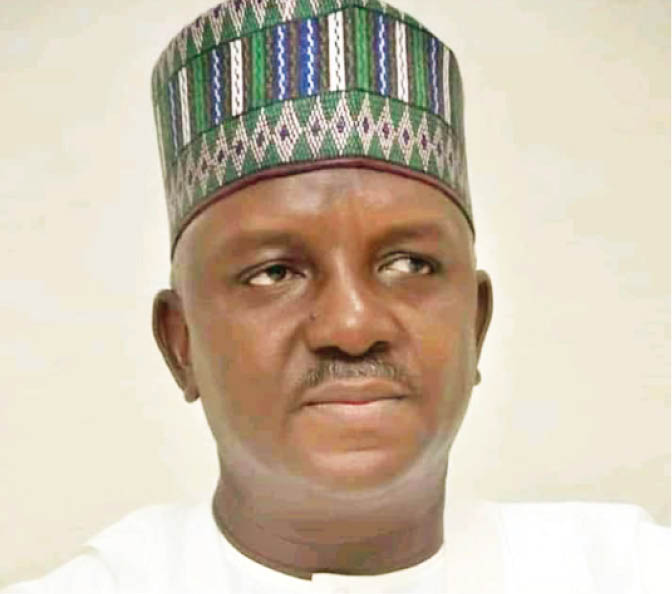BY TIMOTHY BADMUS AFOLABI
To say that President Muhammadu Buhari’s anti-graft crusade is bearing fruits and closing all apertures of corruption and sending chill shivers into the spine of corrupt elements across the country is an under-statement.
It is therefore not surprising when these corrupt elements fight back and vow to destroy the captain of the anti-corruption crusade, Ibrahim Magu, the acting chairman of the Economic and Financial Crimes Commission (EFCC) at all cost and by all means.
This desperate attempts have been made uncountable times and still counting. The recent is that of a bread and butter lawyer, Agu Obasi, who purportedly filed a case seeking for Magu’s removal at the Federal High Court Abuja.
Advertisement
It is evident that the corrupt elements in the country are tired of the Magu Must Go project that is why they picked this nondescript charge and bail lawyer to fight their battle, by using another food – is – ready online news platform, Denisaurus News to give cheap publicity to their futile project.
This article is not meant to react to the ranting of the Indomie joint publication, which falsely claimed that the EFCC czar had directed his staff not to accept the court papers allegedly brought by a court bailiff. My intervention is simply to refresh the minds of Nigerians on some of the issues raised by the so-called lawyer. He claimed that Magu has violated the public service rule by serving as EFCC acting chair for more than six months. Thus, the court must remove him from office because he was indicted by the Department of State Service (DSS) report submitted to the Bukola Saraki-led Senate. The so-called lawyer need to be educated.
It is expedient to state here that the court case, if at all there is any, is another ploy to distract the EFCC chair from executing his laudable fight against corruption. This is because two federal courts have earlier dismissed similar suits seeking removal of Magu as acting EFCC chairman brought before them.
Advertisement
In December 2019, a federal high court in Abuja had dismissed suits seeking the removal of Magu as acting chairman of EFCC.
The judgement was delivered by Justice Ijeoma Ojukwu.The suits were challenging Magu’s status as acting EFCC chairman, despite the non-confirmation of his appointment by the senate under the leadership of Bukola Saraki.
The plaintiffs argued that based on the rejection, Magu should not be allowed to continue to serve in that capacity.
But delivering her verdict, Ojukwu said the law does not provide a specific duration for which an individual can serve as acting EFCC chairman.
Advertisement
She said, by that, the law gave the president “the proverbial yam and the knife to do as he pleases” with the appointment of the EFCC chairman.
Similarly, in 2017, a federal high court in Lagos struct out a suit filed by Ebun-Olu Adegboruwa, a lawyer and rights activist, seeking an order to restrain Magu from holding the office in an acting capacity.
Earlier legal luminaries have voiced their understanding of the issue at stake. For instance, on March 31, 2017, Femi Falana, SAN, a human rights lawyer, said the constitution empowers President Muhammadu Buhari to leave Magu as acting chairman of EFCC for as long as possible.
Speaking on Sunrise Daily, a Channels TV programme, Falana said it was incorrect to say Magu cannot remain in the anti-graft agency because he was rejected by the senate.
Advertisement
Quoting section 171 of the constitution, Falana said the president does not need to ask for confirmation of some appointments.
The senior lawyer said the senate could only confirm ambassadors and heads of foreign mission as provided for in section 171 subsection 2 of the constitution.
Advertisement
“To be honest with you, I sympathise with the senate because if care is not taken, these senators will at the end of the day expose the national assembly to such unfathomable ridicule,” Falana said.
“It will be unfortunate, a tragedy to the country, every public officer has his or her power defined by the constitution. The moment you go outside that you have engaged in impunity. Section 171 of the constitution has vested the power in the president to appoint any person to that office or act in that office and the duration is not specified.
Advertisement
“Of all the positions listed there, positions to be occupied by public officers without any reference to the senate – secretary to the government of the federation, permanent secretaries, head of service and heads of extra-ministerial departments like the EFCC and the ICPC.
“With profound respect, in sending the letter to the senate for confirmation, the president relied on section 2 subsection 3 of the EFCC Act but that section has to be read subject to the constitution.
Advertisement
“So if you do that, section 171 takes precedence over section 2 subsection 3 of the EFCC Act. So does the president need to ask for confirmation? No.
“Unfortunately, the executive is not exposed to sound legal advice on this matter, with profound respect. In that section 171, subsection 2, you also have position of ambassadors and heads of our foreign missions. But that subsection says they shall be confirmed by the senate,” Falana said.
In April 2017, Vice-President Yemi Osinbajo reechoed Falana’s explanation, saying he was fully in support of Magu.
Speaking to journalists at the presidential villa in Abuja, Osinbajo said President Buhari did not find the indictment by the DSS as a strong reason to replace Magu.
Osinbajo expressed support for the view of Femi Falana, a lawyer, who said Buhari does not need the confirmation of the senate to retain Magu.
“It is up to the senate to make their judgement, and it is up to us say what we want to do. If our candidate is rejected, we can rep-resent him. No law says we can’t rep-resent him. And again, there is the other argument, whether or not we need to present him for confirmation and that’s a compelling argument from Femi Falana,” he said.
”His argument is that under the constitution, section 171, and if you look at that section, it talks about the appointments that the president can make. They include appointments of ministers, ambassadors and heads of agencies such as the EFCC. In that same section 171, the constitution rightly said that certain appointments must go to the senate such as ministerial and ambassadorial appointments. Those of heads of agencies like the EFCC do not have to go to the senate. That’s what the constitution says. But the EFCC act, which of course as you know is inferior, says that EFCC chairman should go to the senate for confirmation.
“I am sure that even a pocket book lawyer knows that when a legislation conflicts with constitution, it’s the constitution that prevails. I agree with Mr Falana that there was no need in the first place to have sent Magu’s name to the senate, but we did so and it was rejected by the senate, but I believe that it can be rep-resented. I don’t think there is anything wrong about the fact that senate has rejected him. Senate has acted in its own wisdom to say ‘No, we don’t want him’, and we can say, ‘This is our candidate… we like the gentleman and we want him to continue,” the Vice President said.
Osinbajo also refuted claims that Magu was corrupt as DSS report purportedly claimed. He said the president could have interfered with the DSS report if he wanted to, but that Buhari decided to hear Magu’s own account, after which he felt convinced to retain the anti-graft czar.
“We should commend the president for not interfering with what the DSS said. The DSS came up with a report and the man who was accused refuted it,” he said.
“He explains and gives a reason. When that happened, the president looked at what Magu said and what the DSS wrote and he said ‘I am satisfied with what Magu said’.
“He then decided to retain Magu as the nominee for EFCC. I don’t see any reason why that should be contested. The president has not interfered with what the DSS said. If he wanted to interfere, he would have ordered the DSS to keep quiet. He didn’t do that, but he said ‘I don’t think the DSS report is meritorious enough to withdraw his nomination.’
“The president reserves the right to say, ‘this is who I want’. I’m fully in support of Magu as the EFCC chairman just as the president is,” he said.
Osinbajo said there is nothing new in democracy for legislators to reject an executive nominee. He said despite the mounting opposition against the nomination of Jeff Sessions, attorney-general of the US, he is currently serving in the administration of President Donald Trump.
“You see the American example… There are various reports. People come up with all sorts of things. Look at Jeff Sessions (US attorney-general) for instance, there were many reports. Some accused him of being racist, some of this and that, but he is in office today,” he said.
The chairman of Presidential Advisory Committee Against Corruption (PACAC) Professor Itsey Sagay had explained why corrupt elements are after Magu, when he said the senators feel threatened by Magu’s commitment to his job.
Sagay said Magu is a “man of integrity” who is “just too good for the job.”
“They know that Magu has been outstanding in the fight against corruption, and that his achievements have simply been extremely praiseworthy. He’s been consistent; he’s committed. He’s a man of high integrity and his productivity has been high,” he said.
“The only reason they will refuse to confirm him is that they decided to be perverse on this occasion for reasons best known to them. Probably it’s known to everybody.
“Maybe it’s because he’s just too good for the job, and a lot of people are uncomfortable with people like that who are committed and determined to root out corruption from the country. That’s what it is.”
Sagay also noted that President Muhammadu Buhari will continue to appoint Magu to lead the EFCC, even if the senate refuses to confirm him.
“They have done their own part of the job – very good. They don’t appoint, they merely confirm. So, the appointor will continue to appoint,” the professor of law said.
By all this, it clear that the Obasi and his hidden masters have failed again. No amount of blackmail and campaign of calumny will distract Magu from his onerous task of ridding Nigeria of corruption.
Afolabi writes from Ado-Ekiti, Ekiti state
Views expressed by contributors are strictly personal and not of TheCable.
Add a comment
